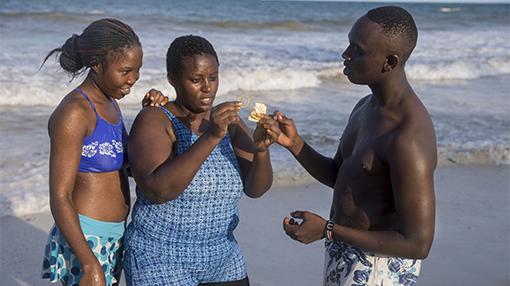The date serves to raise awareness of the need for prevention, research and public policies to care for people with HIV.
According to studies conducted by the National Institute of Health (INASA), Guinea-Bissau has a prevalence rate of HIV/AIDS (3.3%) and HIV-1 infection was the most frequent (1.8%), while HIV-2 was 0.9% and the double infection was 0.7%.
In the over-15 years old, the overall HIV prevalence was 5.8% and in women aged 15-49, the prevalence was 6.9%.
According to the National AIDS Secretariat, Guinea-Bissau is one of the few countries with incidence of both types of human immunodeficiency virus, HIV1 and HIV2, with prevalence rates tending to be higher in HIV1-positive cases.
Since the beginning of the HIV epidemic in Guinea-Bissau, no community study has been done at the national level to estimate its prevalence. Estimates of national HIV prevalence have been made through surveillance data in antenatal consultations in sentinel posts in some regions, community-based studies in the Bandim Health Project (PSB).
In the north of the country, in São Domingos, a sector of the Cacheu region, Mario Julio Mango, responsible for the health area of this locality, said that the HIV prevalence rate in the sector is worrisome. "The 2015 outpatient and emergency data showed that of the 432 tested, 138 people are HIV-positive and in the 630 women tested in antenatal consultations, 30 are HIV-positive."
In Bafatá region, cases have also been increasing mainly among women and young people, the information was disclosed by the head of control and outpatient treatment and general medical doctor of the Bafatá region, Dr. Élio Ernesto Dias. "In the active row we have 2,659 cases, including deaths and transfers, but I currently have 715 people in active treatment throughout the eastern province, of whom 191 are men, and more than 400 are women."
Youth in the Tombali and Quinara region, both in the south of the country, are very concerned about high HIV prevalence in these regions. Paulo João Gomes and Julio Quintino are concerned about the situation of the disease in their regions and call for greater awareness in sectors bordering the neighboring Republic of Guinea
For the president of the association of people living with HIV/AIDS, Pedro Mandica, "the biggest challenge of an HIV positive person in the Bissau-Guinean society is to support other colleagues in their self-esteem, motivation and appealed to husbands to accompany their wives to hospital and not to abandon them, as has been the case in Guinea-Bissau. Still according to Mandica, at this point self-stigma is greater than stigma, people are isolated, do not seek medical support for fear of being judged or stigmatized.
Acquired Immunodeficiency Syndrome (AIDS) is a disease caused by the human immunodeficiency virus (HIV). This virus attacks the patient's immune system, more precisely the lymphocytes, and causes a change in the defense mechanism of the body, causing the very frequently emergence of diseases.
AIDS can be transmitted through sexual intercourse, contact with blood contaminated by transfusion or sharing of syringes, for example, and from mother to baby during pregnancy, childbirth or breastfeeding.






